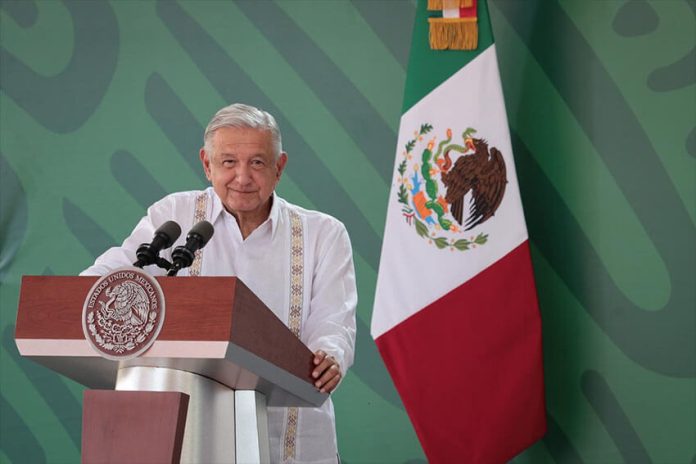Inflation – which rose to 8.16% in the first half of July – will start coming down in three or four months, President López Obrador predicted Friday.
National statistics agency INEGI reported Friday that inflation increased 0.43% in the first 15 days of July compared to the second half of June, leaving the annual rate at a level not seen in more than two decades.
Prices for potatoes, eggs and oranges all rose by more than 6% in the space of just two weeks, while onions were 5.9% more expensive in the first half of July. The cost of air travel also increased, going up by more than 6%, tourism packages were up 4.4% and electricity rose 1.4%.
In annual terms, inflation — currently the product of a range of factors including pandemic-related supply chain problems, Russia’s invasion of Ukraine, coronavirus restrictions in China and drought — was more than 17% for fruit and vegetables, over 16% for meat, almost 12% for processed food, beverages and tobacco, almost 8% for non-food goods, nearly 5% for energy products and 3% for housing and school fees.
Items in the canasta básica — a collection of basic foodstuffs and household items — rose 8.86% over the past year, a figure 0.7% higher than the annual headline rate, which is well over double the central bank’s 3% target.
The high inflation rate will give the central bank added incentive to raise interest rates again when its board meets on August 11. The Bank of México raised its benchmark interest rate by 75 basis points to 7.75% in late June. It was the first time since the introduction of a new monetary policy regime in 2008 that the bank had lifted its key rate by three-quarters of a percentage point.
Speaking in Puerto Vallarta at his regular news conference, López Obrador predicted that inflation will begin to ease in October or November. “That’s my forecast because international conditions are going to start to change,” he said.
The president highlighted that inflation in Mexico is lower than that in the United States, where it reached 9.1% in June, and the European Union, where it hit 9.6% last month. The federal government subsidizes gasoline, helping to keep energy prices down, but López Obrador acknowledged that authorities are struggling to keep a lid on food prices – despite the announcement in May of an agreement with the private sector to ensure fair prices for 24 products in the canasta básica.

“That’s why we’re now promoting all productive activity because the formula is to be self-sufficient in energy and self-sufficient in food,” he said. “That’s what we’ve proposed for many years, in contrast with the neoliberal model,” López Obrador said.
“… We’re now strongly promoting production for one’s own consumption, the production of corn, beans. And we’re strengthening our fertilizer production plants and the plan we have is to distribute free fertilizer to 2 million producers starting this year.”
López Obrador declared that the government is doing its bit so that high inflation is brought under control soon. “With optimism, without falling into triumphalism, I can tell you that we’re going to be fine, we’re going to control inflation soon,” he said.
“… We’ve endured two calamities that have brought us a lot of pain [and] suffering: the pandemic and this inflation, which is global, … exacerbated by the war in Ukraine, because the economy was already in bad shape, it was complicated by the pandemic and ended up worse with the war. They’re external factors that could improve, could change. … There may be opportunities for a fix, that’s what I believe,” López Obrador said.
With reports from El Economista and Milenio
